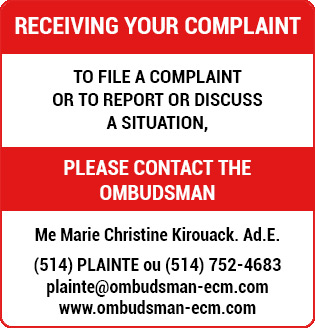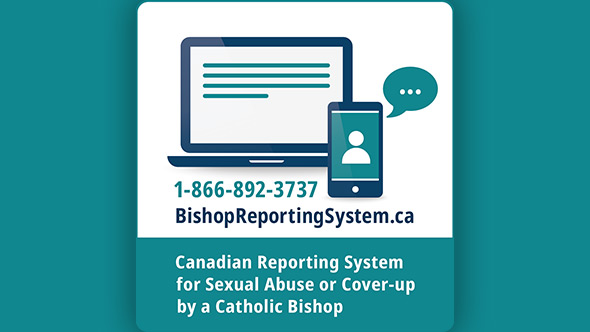Upcoming Training Schedule for Winter 2026
En français
VVA 42 - (2 soirs en présentiel) - Mardis, 17 et 24 février 2026, 18h à 21h30, Oratoire Saint-Joseph, 3800 chemin Queen Mary, Montréal, QC, H3V 1H6
VVA 44 - (4 soirs en virtuel) - Mardis 3, 10, 17 et 24 mars 2026, 19h à 20h30, sur Zoom
VVA 45 - (en présentiel) - Samedi, 21 mars 2026, 9h à 16h, Paroisse Saint-Antoine-Marie-Claret, 10 660 avenue Larose, Montréal, QC, H2B 2Z3
VVA 46 - (2 soirs en présentiel) - Mardis 28 avril et 12 mai 2026, 18h à 21h30, 2000, rue Sherbrooke O., Montréal, QC, H3H 1G4
In English
VVA 43 - Saturday, February 21, 2026, 9 AM to 4 PM, Annunciation Parish, 75 Roosevelt Avenue, Mount-Royal, QC, H3R 2G9
VVA 47 - Saturday, May 16, 2026, 9 AM to 4 PM, Saint John Brebeuf Parish, 7777 George Street, LaSalle, QC, H8P 1C8
Register now :
Formation Virage Victimes d'Abus / Focus on the Victims of Abuse Training – Online Form
Awareness and Training Program
Focus on the Victims of Abuse
Let us build safe and welcoming communities together and protect the dignity and integrity
of all people, because they are "in the image of God".
Program goal
This program aims to raise awareness and educate people about the impact of abuse on victims, and about everyone's responsibility to prevent and report it.
General objective
To provide training for everyone working in the Archdiocese of Montreal to prevent all forms of abuse in the Church: spiritual, psychological, physical, financial, and sexual.
Persons in the following categories are required to participate in this training:
- Members of the Clergy, pastoral agents and other pastoral staff;
- Paid staff of the archdiocese, parishes, missions, and diocesan organizations
- Parish Responsible Pastoral Ministry Coordinators,
- Churchwardens and other volunteers in high-risk positions
- Volunteers working with vulnerable people (catechists aged 18 and over, PHC volunteers, volunteers working with retired, sick and/or elderly priests, etc.).
For information:
pastoresponsable@diocesemontreal.org
514-925-4300, poste 288 or 353
Testimonials from participants:
“I was sceptical and went reluctantly, thinking this training had nothing to do with me. But I learned a lot and I think that this training is essential for everyone.” – Churchwarden
“The session was very enlightening. I am glad the Archdiocese is the leader in the path of reconciliation.” – Catechist
“The creation of the Ombudsman position is fantastic. It gives me hope for the future of the Catholic Church.” – Secretary
DIOCESAN OFFICE OF (PROFESSIONAL) ETHICS
For several years, the Church in Montreal has been committed to building a pastoral environment that is healthy, safe, and transparent. This commitment was formally strengthened in 2016 with the establishment of the Responsible Pastoral Ministry initiative by decree, laying solid foundations for abuse prevention, integrity, and respect through sustained awareness and formation within Christian communities.
The Diocesan Office of Ethics brings together Responsible Pastoral Ministry, the Canonical Disciplinary Committee, and the Advisory Committee, while serving as a liaison with the Ombudsman.
The Office’s mission is to help strengthen ethical practice and pastoral accountability by coordinating:
- the prevention of abuse;
- the implementation of the Code of Ethics and Conduct;
- ongoing support for responsible pastoral ministry;
- and the continuous improvement of complaint-handling procedures.
This work builds on the Church’s ongoing Focus on Victims of Abuse (FVA) program, which provides training and awareness for all collaborators—clergy, lay ministry leaders, pastoral staff, and volunteers—on the impacts of abuse and their shared responsibility for prevention and reporting.
In February 2026, a new Code of Conduct for the Clergy was officially promulgated and implemented. This document clarifies expectations regarding pastoral conduct, helps strengthen ethical standards, and promotes a culture of respect and accountability. It serves as an essential reference for priests and deacons in the daily exercise of their ministry.
Through these initiatives, the Archdiocese seeks to help continue cultivating a pastoral culture rooted in responsibility, care, respect, and safety for all members of our community.
Responsible Pastoral Ministry is every pastoral ministry and action committed never to engage in any form of abuse, whether sexual, physical, spiritual, or financial, against any minor or vulnerable person in order to protect the dignity and the integrity of all people, in recognition of the inherent worth and divine image present within each individual.
The prevention of all forms of abuse against children, young adults and vulnerable persons includes the implementation of a screening process and the application of a Code of Ethics and Conduct.
Screening, a responsible process tied to human resource management, consists of carefully examining the candidacy of those who apply for a job, be it in a volunteer or paid position. This process clears the way to choosing the best candidates and to warding off, as much as possible, all those who might be susceptible to behaving inappropriately toward those who are vulnerable, be it children or adults.
Screening objectives
1- To create and maintain a safe and secure environment.
2- To assure that the chosen candidate possesses the necessary aptitudes to accomplish the task.
Screening steps
Job description
The job description for positions of authority defines the tasks to be performed in the context of a particular service or of a pastoral activity. The task description establishes the precise rules and procedures to which all hired personnel in pastoral activities must conform. It also permits the proper evaluation of the risk level inherent in each task.
Risk evaluation
Risk evaluation associated with a position represents a pivotal step if we want to choose the most adequate screening measures. This evaluation, done beforehand, will be very useful to the directors of the screening process, and is comprised of 10 steps.
The following factors will serve to establish the risk level for a position of authority:
-
Profile of the participants or the beneficiaries (age of the people involved, physical state, degree of vulnerability);
-
Environment (location of the activity, physical disposition, public/private);
-
Nature of the activity (animation, counseling, visit);
-
Type of supervision (people present, direct, indirect, frequency);
-
Nature of the interactions (individual, group, intensity, intimacy).
Recruitment process
It is strongly advised that all organizations adopt a formal recruitment process, whether for volunteers or for those in paid positions.
If you want to transition from an informal hiring context to a process that is more systemized, we recommend following these steps:
-
Provide a written statement that outlines the position of authority or the description of the associated tasks to the people involved;
-
Give written or oral explanations concerning the moral and legal obligation of submitting to administrative formalities, as much for any volunteers who wish to work for the community as for those applying for a paid position;
-
Provide information regarding the routine screening process that all candidates must submit to.
The admission or identification forms should be completed by all those who wish to occupy a position, or who already occupy a position. This form, which collects basic information (name, coordinates, work experience, references, etc.), will allow, as needed, the various diocesan organizations to proceed with regular verifications, according to the risk associated with the desired or occupied position.
Job interview
All new personnel offering their services on the diocesan or pastoral level must undergo a job interview, to be led by at least two interviewers. The candidate will answer questions pertaining to his or her human and professional development (formation and experience), his or her motivations, as well as all other subjects judged to be pertinent, with scrupulous respect to the fundamental rights of the person as granted by the laws and charters of Quebec.
Practical guide for interviews
Verification of references*
All candidates who wish to occupy a function (whether paid or not) in the diocese, must provide at least two references on his or her admission form. Those listed as references may be of several types: employers, association managers, pastors, community members, etc.; out of prudence, the listed references must have no family ties with the candidate. The verification of a reference is most often done over the phone and does not last longer than ten to twelve minutes.
Checklist for the verification of references
Background check*
Background checks are carried out under a Memorandum of Understanding between the Service de police de la Ville de Montréal (SPVM) and the Archdiocese of Montreal for those working with vulnerable clientele and a private firm for other high-risk positions. The diocesan department in charge of Responsible Pastoral Ministry informs parishes and other organizations under its authority of the application of these protocols.
*Steps requires for people applying for a high risk position.
All hired personnel are considered on probation for a determined time, out of respect for the laws of Quebec. This probationary period, clearly outlined by the employer, will allow for the validation or cancellation of the choice of candidate for the position. This probationary period is essentially the orientation and formation stage.
The orientation and formation stage allows the employer:
- To review with the hired person what the task consist of, the objectives to be achieved and the expectations of the parish directors, as well as the internal functioning of the organization (procedures, relationships with authorities, responsibilities, etc.);
- To familiarize the person with the diverse tools associated with their task (programs, catechetical processes, etc.);
- To acknowledge that the employee or volunteer have read the Code of Ethics and Conduct, and undertook to respect it by signing the commitment form.
- To keep up to date employee and volunteers with any document necessary to complete the policy for responsible pastoral ministry, such as the guide to online activities, in our common concern to always promote a safe and healthy environment for our pastoral activities.
A volunteer candidate who has been accepted at a parish has an obligation to provide written (signed) agreement to respect the mutual commitment agreement.
Supervision and evaluation
The form and frequency of evaluations will vary according to the nature of the task (or the function) and the associated risks. For this reason, the supervision of any positions of trust will be regular and thorough.
The supervisor must therefore foresee the form and frequency of the evaluation of the person under his or her responsibility, keep that person informed, and as much as possible provide support in a positive way and tailor their professional development and the use of their talents.
Follow-up with participants
After the supervision and evaluation of pastoral personnel, whether volunteer or in a paid position, it is also necessary to assure a follow-up for the beneficiaries of the pastoral work (and their families, if necessary)
Regular meetings or telephone contact with the participants (and their families) of a program or activity will allow those responsible to assure their human and organizational quality. These follow-ups will also allow for the quick identification of a dysfunctional individual or of any malevolent intentions.
Upcoming Training Schedule for Winter 2026
En français
VVA 42 - (2 soirs en présentiel) - Mardis, 17 et 24 février 2026, 18h à 21h30, Oratoire Saint-Joseph, 3800 chemin Queen Mary, Montréal, QC, H3V 1H6
VVA 44 - (4 soirs en virtuel) - Mardis 3, 10, 17 et 24 mars 2026, 19h à 20h30, sur Zoom
VVA 45 - (en présentiel) - Samedi, 21 mars 2026, 9h à 16h, Paroisse Saint-Antoine-Marie-Claret, 10 660 avenue Larose, Montréal, QC, H2B 2Z3
VVA 46 - (2 soirs en présentiel) - Mardis 28 avril et 12 mai 2026, 18h à 21h30, 2000, rue Sherbrooke O., Montréal, QC, H3H 1G4
In English
VVA 43 - Saturday, February 21, 2026, 9 AM to 4 PM, Annunciation Parish, 75 Roosevelt Avenue, Mount-Royal, QC, H3R 2G9
VVA 47 - Saturday, May 16, 2026, 9 AM to 4 PM, Saint John Brebeuf Parish, 7777 George Street, LaSalle, QC, H8P 1C8
Register now :
Formation Virage Victimes d'Abus / Focus on the Victims of Abuse Training – Online Form
Focus on the Victims of Abuse Training
The collaboration of all is important to achieve a major transformation for abuse prevention.
Awareness and Training Program
Focus on the Victims of Abuse
Let us build safe and welcoming communities together and protect the dignity and integrity
of all people, because they are "in the image of God".
Program goal
This program aims to raise awareness and educate people about the impact of abuse on victims, and about everyone's responsibility to prevent and report it.
General objective
To provide training for everyone working in the Archdiocese of Montreal to prevent all forms of abuse in the Church: spiritual, psychological, physical, financial, and sexual.
Persons in the following categories are required to participate in this training:
- Members of the Clergy, pastoral agents and other pastoral staff;
- Paid staff of the archdiocese, parishes, missions, and diocesan organizations
- Parish Responsible Pastoral Ministry Coordinators,
- Churchwardens and other volunteers in high-risk positions
- Volunteers working with vulnerable people (catechists aged 18 and over, PHC volunteers, volunteers working with retired, sick and/or elderly priests, etc.).
For information:
pastoresponsable@diocesemontreal.org
514-925-4300, poste 288 or 353
Testimonials from participants:
“I came backwards, without conviction, because I thought that this training did not concern me. But I learned a lot and I think that this training is essential for everyone.” – Churchwarden”
“The session was very enlightening. I am glad the Archdiocese is the leader in the path of reconciliation.” – Catechist
“The creation of the Ombudsman position is fantastic. It gives me hope for the future of the Catholic Church.” – Secretary
1100 volunteers have already taken part in this training.
More sessions will be offered in the fall of 2023. Stay tuned!
For more information, please contact the Pastoral Responsible Ministry at 514 925-4300 # 353.
Please see the following documents:
Communiqués :
- February 2, 2022 - Pastoral Ministry - Information
- February 11, 2022 - Pastoral Ministry - Information
- January 22, 2022 - Message from the Archbishop
Module 1: It's not just about sexual abuse
Module 2: Struck to the core
Do you want to file a complaint? Contact the Ombudsman.
“Walk the Talk”
In an open letter published on September 8, 2018, in La Presse and The Gazette, Archbishop Lépine appeals to everyone within the Church to be resolute in tackling the issue of sexual abuse.
Bishop Reporting System
Filing a complaint
- Ombudsman presentation
- Files first report - Ombudsman of the Archdiocese of Montreal (2021-08-17)
- Files second report - Ombudsman of the Archdiocese of Montreal (2021-12-07)
- Files third report - Ombudsman of the Archdiocese of Montreal (2022-04-19)
- Files fourth report - Ombudsman of the Archdiocese of Montreal (2022-08-17)
- Files fifth report - Ombudsman of the Archdiocese of Montreal (2022-12-12)
The diocesan pastoral responsibility service wants all parishes, works and diocesan organizations to put into place a systemized screening process for salaried personnel and volunteers. Integrating this process of preventative measures into current systems of operations will allow us to achieve the objectives of the pastoral responsibility policy.
Contact information:
|
Gabrielle Bélanger, |
|
Responsible Pastoral Ministry
2000 Sherbrooke St. West
Montreal (Qc)
H3H 1G4
(514) 925-4300, ext. 353
pastoresponsable@diocesemontreal.org




